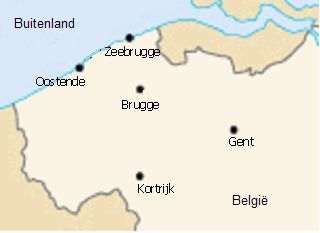
Pages
Poulpharm
Abstract 1 Bachelor Project FBT 2020-2021: The development of a multiplex qPCR for the identification of Eimeria species
Chickens can be infected with seven different Eimeria species. Some of them are very pathogenic resulting in high mortality and big economic loss in the poultry sector. Therefore identification of coccidiosis is very important. The exact composition of species in inocula can be determined with qPCR. At the moment, the identification of the different Eimeria species is performed by seven individual qPCRs. Therefore the aim of this project is to develop multiplex qPCRs in wich the primers and probes of the Eimeria species are combined, resulting in a reduction of time and costs.
First, an in silico assessment was performed in wich primer heterodimers and homodimers were investigated (UNAfold). In addition, BLAST was used to check the positions of the primers and probes. The combinations that were assessed are two triplexes and one monoplex. Triplex one includes E. acervulina, E. tenella and E. brunetti. Triplex two includes E. maxima, E. mitis and E. praecox. E. necatrix will be performed in a qPCR alone. Both multiplexes detected the right species and showed no aspecific binding. The probe for E. tenella detects also E. praecox but the Ct-values are around 40, results with a Ct-value above 40 can be seen as negative. But further research is necessary for this probe. The sensitivity should be assessed because some samples with a low number of oöcysts are not detected as well as the optimalisation of the reagents. In this thesis, a multiplex qPCR including E. acervulina, E. tenella and E. brunetti was not successfully developed because of the E. tenella probe that detects also E. praecox. But the other combination with E. maxima, E. mitis and E. praecox was successfully developed. Further optimalisation of the qPCR is necessary.
Abstract 2 Bachelor Project FBT 2020-2021: Comparative study of DNA extraction methods for Eimeria species
A main parasitic disease in chickens is coccidiosis caused by Eimeria species. The aim of this project is to find a time-reducing and reliable extraction process to extract DNA from Eimeria oocysts compared to the currently used manual extraction procedure. The project will compare two automated extraction kits: 1) InnuPREP Stool DNA kit -IPC16 and 2) InnuPREP Anipath DNA/RNA kit -IPC16 with the currently used method Qiagen Blood and Tissue kit. Moreover, the ability to extract DNA from Eimeria species in faeces will be assessed with the current manual extraction kit. For this, the percentages of Eimeria species in the DNA extracts will be measured with qPCR and the DNA yield with SimpliNano.
After statistics, the concentration measurement shows that the Blood and Tissue kit from Qiagen extracts the most efficient, however the extracts from the InnuPREP kits are purer. The PCR results show that all the methods are too low in specificity and, due to that, unreliable.
In conclusion, all three extraction methods delivered no reliable results. Therefore, further research is necessary to find an efficient DNA extraction method for Eimeria oocysts. Maybe using a different, stronger lysis buffer or another stool kit especially for parasites can be a solution.
Address
|
Prins Albertlaan 112
8870 Izegem
Belgium |
Contacts
|
Tessa Gryp
Tessa.Gryp@poulpharm.be |
|
Hanne Vanderstraeten
Hanne.Vanderstraeten@poulpharm.be |

